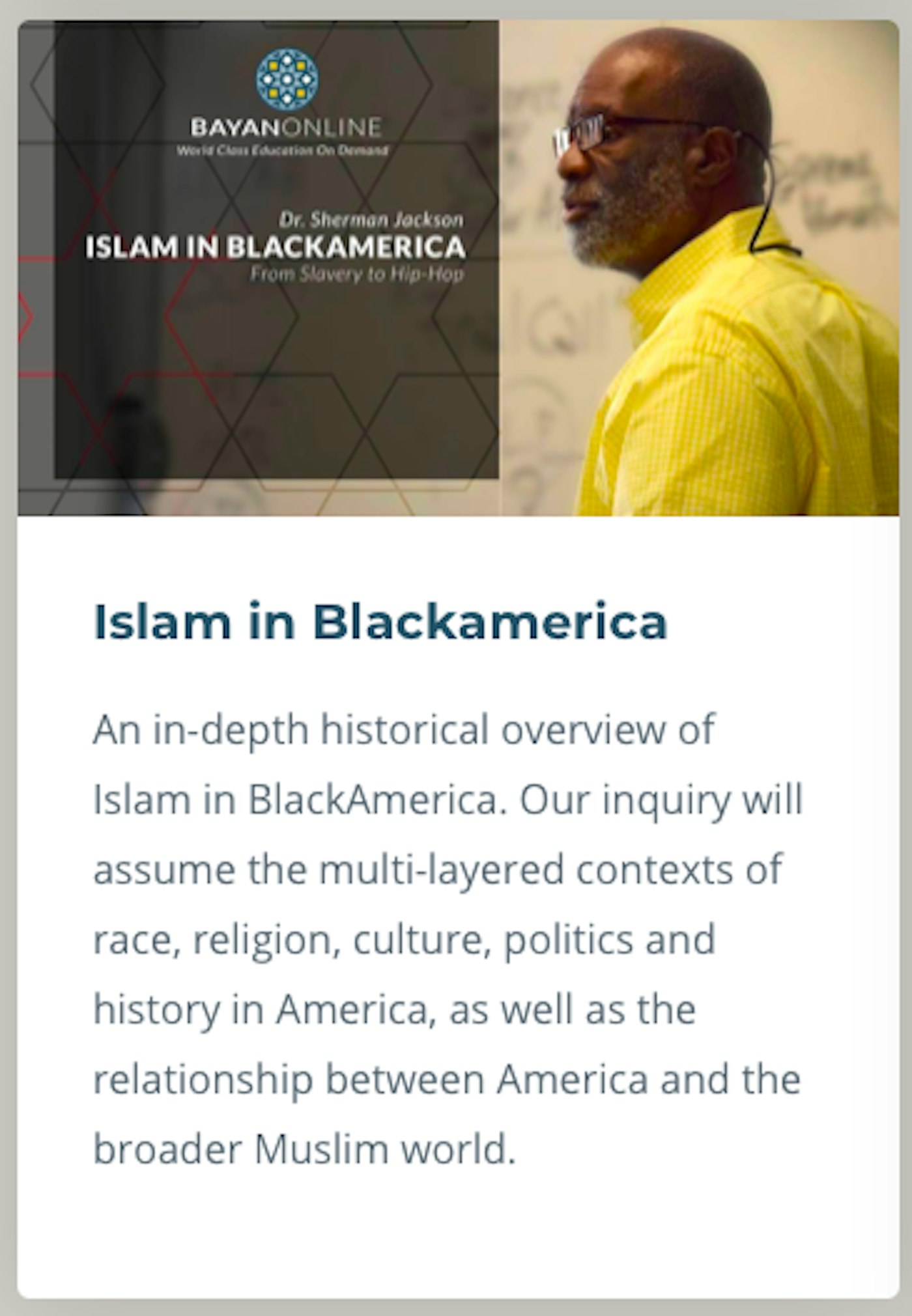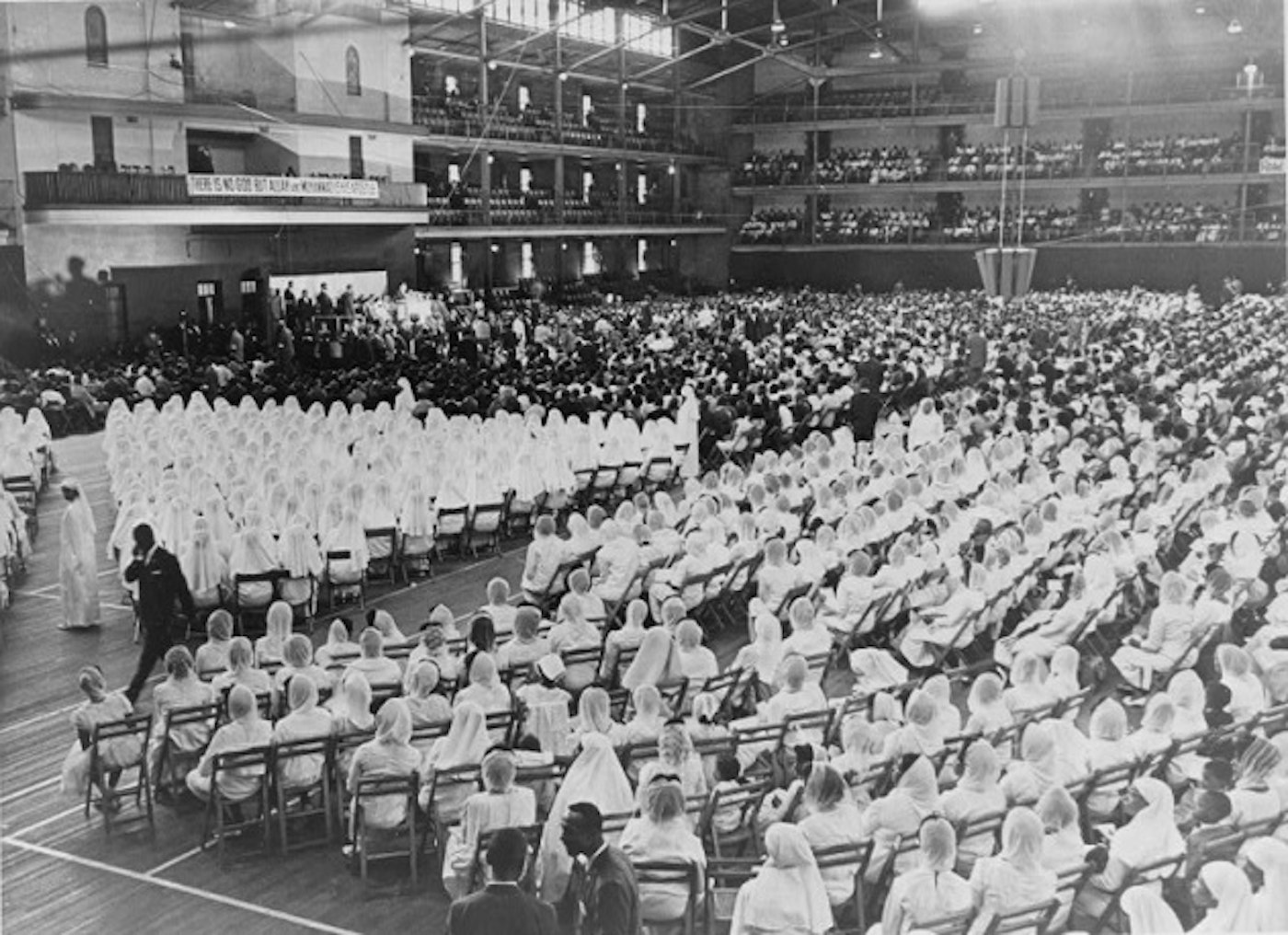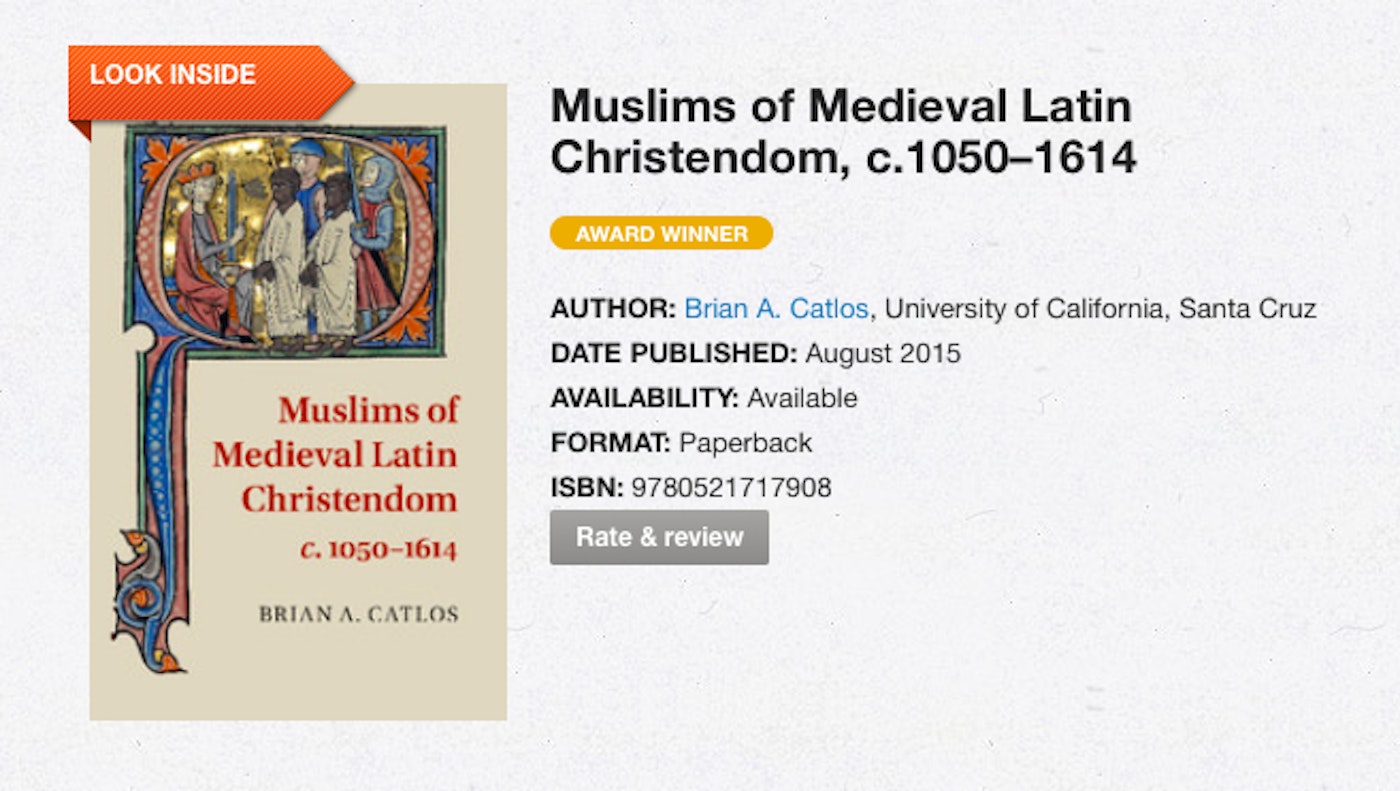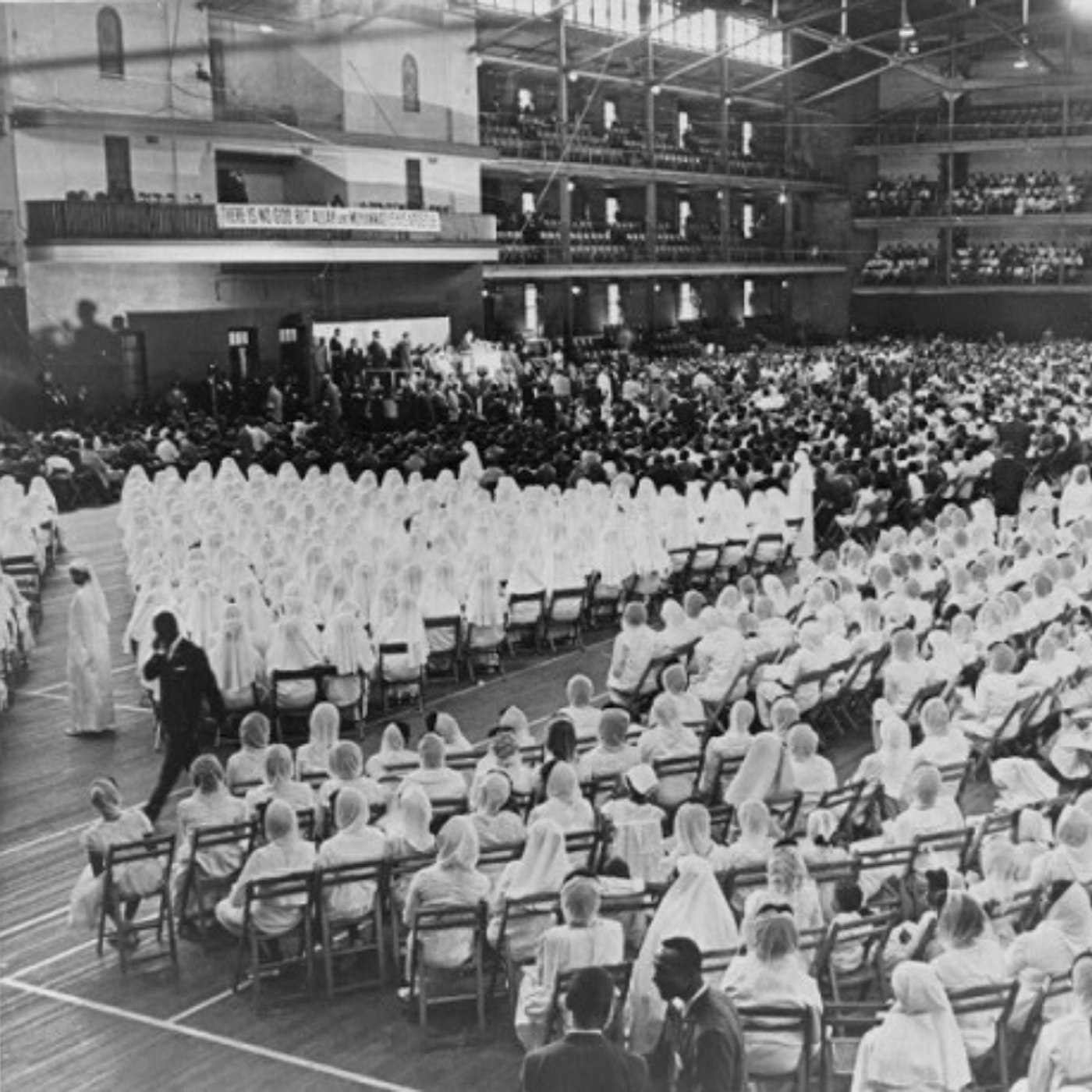14 Resources and Initiatives on Black Muslim History– From the UK to USA
by Selina Bakkar in Culture & Lifestyle on 12th October, 2020
This article is currently being edited by our team and will reflect more resources. Please feel free to email us if you’d like to nominate an organisation or individual or change the information cited: contribute@amaliah.com
This article was written in 2019 and it has been updated over the last year and will continue to be updated, if you are from any of the organisations listed below and require a specific update please email selina@amaliah.com.
We share this article to relay that this article isn’t created to just be shared on social media, but for each every oneryone of us to take the time to visit each resource, educate ourselves, support the many initiatives listed and commit to a life long learning Insha Allah.
-
Islam in Black America By Sherman. A. Jackson
“Sherman A. Jackson, also known as Abdul Hakim Jackson is an American scholar of Islam. Jackson is the King Faisal Chair of Islamic Thought and Culture and Professor of Religion and American Studies and Ethnicity at the University of Southern California. Jackson was formerly the Arthur F. Thurnau Professor of Near Eastern Studies, Visiting Professor of Law and Professor of Afro-American Studies at the University of Michigan.”
The course Islam in Black America is currently free on @bayanclaremont for a limited time only but we would recommend looking into supporting the work long term.

View this post on InstagramA post shared by Bayan Islamic Graduate School (@bayanclaremont) on
2.Black Muslim Forum
“Bringing awareness and creating solutions to combat racism, colourism, and anti-Blackness in the Muslim community.” This blog is massively needed, it looks into unraveling progressive and needed conversations in the public space. Providing dynamic perspectives from politics, to identity. The founder is also in the process of bringing a black Nana Asma’u community school.
View this post on InstagramA post shared by Black Muslim Forum (@blackmuslimforum) on
3. Mustafa Briggs
Mustafa Briggs has been running lectures titles “Beyond Bilal” over the course of the last few years, his lectures consist of him going into detail about the diversity amongst our sahabahs and Prophets, looking at lineage and information and presents to us exactly who was Black & Muslim, his lectures continue to reflect great variety and more recently he shared his admiration for Malcolm X
“I, like many other young Muslims in The West, have always had a deep love, respect, and admiration for Malcolm X, and there was a time, along with most others, that I assumed that Islam in the USA began to spread with the arrival of immigrant communities and during the civil rights movement in the sixties after the impact of the Nation of Islam. However, after marrying an American Muslim who comes from an African-American Muslim community that is entering its fifth generation , as well as being able to tour the USA delivering my last lecture Beyond Bilal and coming into contact with elders and scholars who deepened my understanding of the History of Islam on the continent, I continued to research and discover a surprising, amazing and deep history that I am now ready to share with you all. And so after the success of Beyond Bilal, I’m excited to reveal to you all the next part of my lecture series, Before Malcolm X: The History of Islam in the Americas!”
View this post on InstagramA post shared by Mustafa Briggs (@mustafabriggs) on
4. The ARDA
Photo records of the American Society of Muslims (1976) and a revitalised Nation of Islam group under the leadership of Louis Farrakhan (1977).
“Beginning in 1913 with the founding of the Moorish Science Temple of America by Noble Drew Ali, the Black Muslim movement emphasized the unique role of Islam as the “true religion” of the black community and its role in fighting white supremacy in the United States. Fusing religion and black nationalism, the movement grew with the rising influence of the Nation of Islam (NOI), founded in 1930 by W.D. Fard and sustained by Elijah Muhammad thereafter. NOI leader Malcolm X attracted national attention, but also received criticism for promoting black supremacy.”

Elijah Muhammad addressing an assembly of Muslim followers- Library of Congress, LC-USZ62-116384
5. Black Muslim in Britain
“A video series, which consists of seven videos is a collection of stories and dialogue from influential Black Muslim in the UK.”
Last year a range of Black British Muslims were involved from Muneera Pilgrim, Habeeb Akande, Mahmoudat Sanni Oba, Dawud David Currie, Saraiyah Bah and many more.
The initiative has been going from strength to strength and aims to explore a variety of conversations from identity as a Black Muslim in the UK to what finding love is like. Filled with emotion its a beautiful and varied representation of the Black Muslim community in the UK.
We have so many diverse Black Muslims in season two for #BlackHistoryMonth.
You can meet them all at our screening on Sat 13th Oct. Buy tickets here: https://t.co/ueX5s2qBM8 pic.twitter.com/hMlWjsm8Wh
— BMB Project (@BMBProject) October 2, 2018
6. Everyday Muslim – Black Heritage project
“Everyday Muslim’s third annual symposium will aim to explore constructions of Black Muslim identity and heritage in the UK and how the stories of Black British Muslims intersect within the wider British Muslim society and beyond. It will bring together those working in academic, heritage, arts and media organisations to interrogate the changing ways in which everyday Black Muslim life has been represented and archived. It seeks to ask how the process of constructing a Black Muslim heritage has changed over the years and looks forward to possible forms that this might take in the future.”
▶ What do the terms Black and African mean? by Everyday Muslim Voices #Podcast with host @MuniPilgrim including @hakimadi1
music: Ahmed Ikhlas @SoundCloud #BlackLivesMatter #representation #archives #british #history #heritage https://t.co/4iCALbaM8E— EverydayMuslim (@Everyday_Muslim) June 4, 2020
7. Black Muslimah Toolkit
Momtaza Mehri, a poet, and comparative literature researcher has compiled an incredible and extremely vital document named the ‘Black Muslimah Toolkit’.
Want to build a reading list?
Momtaza Mehri @RuffneckRefugee has you covered with the Black Muslimah Toolkit. Includes but is not limited to poetry, essays, academic resources and music.https://t.co/PSKuGzZpdJ
— amaliah.com (@Amaliah_Tweets) January 5, 2018
A free google document, readily available to anyone featuring a list of links to multiple different resources. The list includes, but is not limited to poetry, essays, academic resources, music. It is meticulously organised into fifteen categories, to ensure easy access;
- Black/Muslim Poetics,
- On Black Muslim Art & Praxis
- Black/Muslim Hip-Hop Scholarship
- Beauty Politics
- Theory/Diagnosing The Wound
- Between Feminism(s)
- Anti-Black Islamophobia(s)
- On Spirituality, Suffering & Resistance
- Of Mothers & Daughters
- Self-Care & Self Defence
- Through The Lens
- Cinematic Visions
- Tasbihs & Turntables: A Playlist
- Podcasts On Loop
- Miscellaneous
Some examples include; the poem ‘A Personal Jihad’ by Gaston Neal, a Dua for Ancestors by Dr. Su’ad Abdul Khabeer, and a video of Five weak points and strikes for self-defence.
8. Black Muslim Syllabus
This project is curated by Dr. Kayla Renée Wheeler and was inspired by Prof. Najeeba Syeed, #BlackInMSA, and Muslim ARC. The goal of this project is to provide teachers, professors, researchers, journalists, and people interested in learning more about Islam with resources on Black Muslims to promote a more inclusive approach to the study of Islam. If you would like to contribute to this project, post your recommendations on Twitter using #BlackIslamSyllabus
#BlackIslamSyllabus is FINALLY up to 30 pages! https://t.co/8PMCfRP1jW
— Kayla Renée Wheeler (@krw18) May 2, 2016
9. The Black American Muslim
A website filled with articles, essays, books, food, and events to learn about to help understand the myriad factors making up the Black Muslim American Muslim identity. The founder’s vision is to see, “healthy, Black, American Muslim families who are clear about the worship of Allah alone, clear about the Prophethood of Muhammad (pbuh) and committed to the realization of a ‘full dignified life in America.’
A ‘full dignified life in America’ means a life with equal access to quality education, both secular and religious for men and women, decent housing, full employment opportunities for all people and a society free of white supremacy and other totalitarian inclinations. In other words, a truly pluralistic society that protects freedom of religion, freedom of the press, freedom from fear and freedom from want. Education is the key that unlocks the mysteries of societal organization *. Competency in the professions of law, finance, business administration, technology, and medicine will enable us to begin to cast off the chains of oppression in its many forms and forge a future based on the guidance of Allah in light of contemporary scientific knowledge.
10. Enter Sapello Square
“We take the name “Sapelo” from one of the first communities of African Muslims in the United States founded in the early 1800s. On Sapelo Island, off the coast of Georgia, enslaved African Muslims struggled to hold onto their Islamic roots amidst the dehumanizing institution of slavery. Our use of the term “square” is about the famous Congo Square and the broad notion of a town square as a communal place of gathering and a cultural hub for African-descended people.
On Our Name | Learn about our namesake and why we chose to honor that legacy.#SapeloSquare #BeingBlackAndMuslim https://t.co/ETO5NX7JU4
— Sapelo Square (@SapeloSquare) March 3, 2018
Black Legacies. Black Futures honored #MalcolmX while recognizing 5 years in the game. Through it all we learned a few lessons we’d like to share. Check out today’s post to find out what they were: https://t.co/pQgQO5ideb #muslim
— Sapelo Square (@SapeloSquare) June 4, 2020
African-descended Muslims are situated at the intersection of three significant geographies: the African diaspora, the United States, and the Transnational Muslim community. They are therefore positioned to make critical and unique contributions to many meaningful conversations on the status of Black America, the state of US society, politics and culture, and Islam in the 21st century. Yet, because their unique intersectionality challenges the traditionally imagined boundaries of these geographies, Black Muslims have often found themselves excluded, or rendered invisible by much of the mainstream discourse around these issues.
In the spirit of “do for self,” Sapelo Square hopes to intervene in the marginalization and erasure of Black Muslims in the public square by building an online forum that places Black Muslims at the center. Our mission is to celebrate and analyze the experiences of Black Muslims in the United States to create new understandings of who they are, what they have done, and why that matters.”
11. Royal Museums Greenwich Blog
Have a read of this fantastic piece uncovering a history of Black Muslims in Britain.
Hassan Mahamdallie, Director of the Muslim Institute, considers recent archival finds uncovering the stories of men and women from black and Asian people in Britain, including 2000 photographic records of Bangladeshi ships’ cooks in the archives of the National Maritime Museum.
There are two complimentary foundation texts for those interested in the history of black and Asian people in Britain. One is Peter Fryer’s Staying Power: The History of Black People in Britain;\
12. The National Archives
Find your online historical resources from the last 1000 years. Catalogues and collections, essays, and books. Bringing history buffs more resources and accessibility to facts and nuance, all at the click of a button. There isn’t a huge catalogue of information but some exists.
13. Cambridge University Press
Sift through 1108 books on black Muslims, 2 journals, and 14 counts of related topics. This is a great way to engage with academic books, revealing the more mainstream resources that are out there on black and black muslim history, literature, physics, astronomy, politics, international relations, and religion.

14. Islamic History Project
A platform designed to empower Muslims through educating them on theirs individual and collective histories.
“The Islamic History Project is an initiative founded on the belief that through reviving our connection to Islamic history we can empower Muslims of today. Islamic history has been widely neglected by Islamic institutions as well as western academic settings. This has created an identity crisis in Muslims living in both East and West. Our history defines who we are today, what we stand for and determines our direction.
View this post on InstagramA post shared by IslamicHistoryProject (@islamichistoryproject) on
Every nation must know their shared history to be truly united and empowered. As Marcus Garvey famously quoted, “A people without the knowledge of their history, origin, and culture is like a tree without roots.” Many of us grow up our entire lives never knowing the history of the Ummah beyond the Seerah. The Islamic history project is an effort to bring to the forefront our stories of the past. We must teach the Ummah its successes and failures, and remind the world of the significant contributions Muslims have made to the world in which we live today. Reclaiming our past will help us to build our future.”
Is there an initiative or resource that should be featured? Dm or email us at contribute@amaliah.com
Selina Bakkar
I'm a simply striving to be better and improve in different areas of my life through more self awareness, experiences and learning more about the deen. You'll find me talking about community, connection, planting & growing, seeking the truth in an age of propaganda and misinformation. This year I want to document more to do with food heritage and history so watch this space or reach out. Have a listen to the Amaliah Voices podcast where I talk passionately about Islam, nature, motherhooding and back home. Link in bio peeps. To join the Amaliah Writer Community email me at selina@amaliah.com IG: SelinaBakkar
